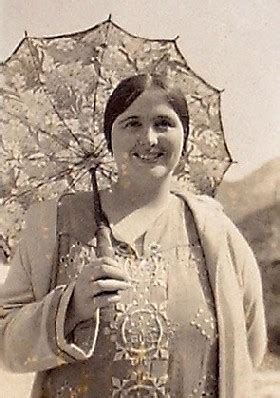A Quote by Zach Gilford
I used to like the word of the day and when I read, highlight words that I didn't know and look them up.
Related Quotes
For we let our young men and women go out unarmed in a day when armor was never so necessary. By teaching them to read, we have left them at the mercy of the printed word. By the invention of the film and the radio, we have made certain that no aversion to reading shall secure them from the incessant battery of words, words, words. They do not know what the words mean; they do not know how to ward them off or blunt their edge or fling them back; they are prey to words in their emotions instead of being the masters of them in their intellects.
I have used the words and expressions which my experiences from Minsk to Kharkov to the Don suggested to me. But I should have reserved those words and expressions for what came later, even though they are not strong enough. It is a mistake to use intense words without carefully weighing and measuring them, or they will have already been used when one needs them later. It's a mistake, for instance, to used the word frightful to describe a few broken up companions mixed into the ground: but it's a mistake that might be forgiven.
I like to look up the formal definitions of words that I'm already familiar with and sometimes you find out a word means something you didn't already think of, you know? I looked up the definition of "upset" and it was something like, "To be filled with uneasiness and anxiety," and I feel like that all the time, so I was like, "That's appropriate." But also it's a name that when you hear it, you wouldn't assume that it's any certain type of band. It kind of has room to grow into and make it redefine the word.
Frankly, I get much more sensitive about what's written about me than how I look in a photo. I'm so used to people seeing my image in plays and films that what they think about how I look is none of my business. If they says, "Hey, he doesn't look good," I'm like, Whatever, because I know I look different from day to day. But if you're up there putting your heart into something and people reject your performance, that's very painful. The written word can kick your ass.
He had a word, too. Love, he called it. But I had been used to words for a long time. I knew that that word was like the others: just a shape to fill a lack; that when the right time came, you wouldn't need a word for that any more than for pride or fear....One day I was talking to Cora. She prayed for me because she believed I was blind to sin, wanting me to kneel and pray too, because people to whom sin is just a matter of words, to them salvation is just words too.
I used to do miserably in English literature, which I thought was a sign of moral turpitude. As I look back on it, I think it was rather to my credit. The notion of actually putting writers' words into other words is quite ridiculous because why bother if writers mean what they mean, and if they don't, why read them? There is, I suppose, a case for studying literary works in depth, but I don't quite know what 'in depth' means unless you read a paragraph over and over again.
I’ve always been a word guy, I like weird words and I like American slang and all that and words that are no longer being used… I like to drag them out of the box and wave them around… this is an interesting one, it’s amazing how in addition to punctuation just a little pause in the wrong place can just completely transform the meaning of something.
To understand oneself requires patience, tolerant awareness; the self is a book of many volumes which you cannot read in a day, but when once you begin to read, you must read every word, every sentence, every paragraph for in them are the intimations of the whole. The beginning of it is the ending of it. If you know how to read, supreme wisdom is to be found.
Words fail me sometimes. I have read most every word in the Webster’s International Dictionary of the English Language, but I still have trouble making them come when I want them to. Right now I want a word that describes the feeling you get – a cold sick feeling deep down inside – when you know something is happening that will change you, and you don’t want it to, but you can’t stop it. And you know you will never be the same again.
Words are delicate instruments: How to use them so that, after having read the poem, the taste remaining is not of the words themselves, but of a thought, a situation, a parallel reality? If not used appropriately, words in poetry are like the ugly remains of food after eating. What I mean is that readers will reject words if they don't serve to shift attention from themselves to somewhere else.




































